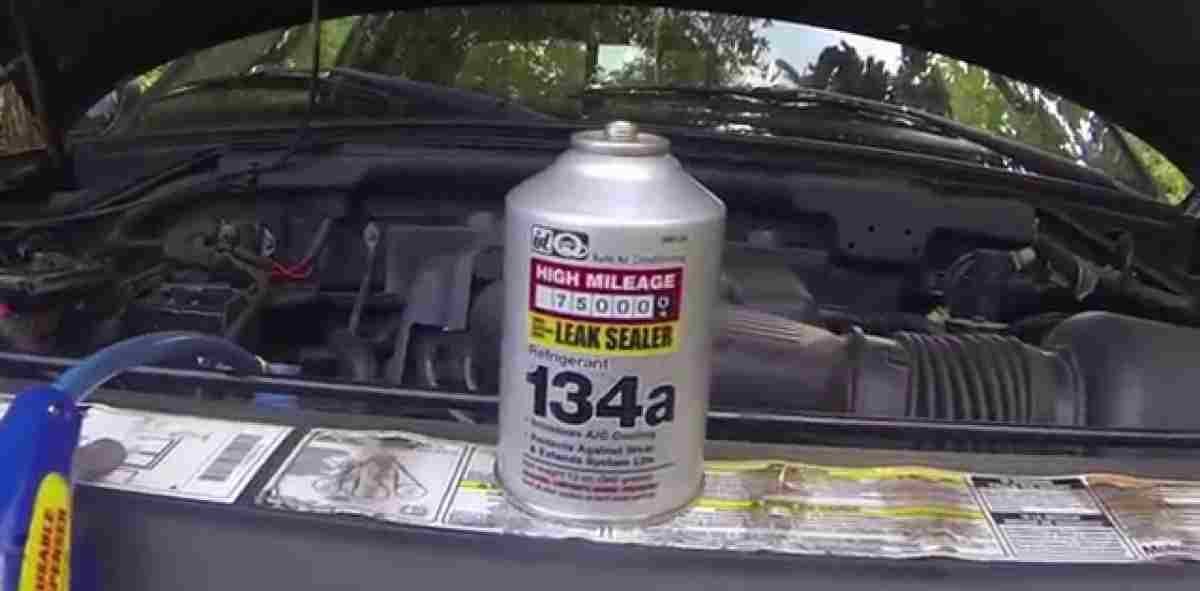How to Tell if Your Car AC Needs Freon
With the heat getting tougher, you want to know how to tell if your car AC needs freon to stay ventilated. The increasingly warming atmosphere means you need your air conditioning systems active.
Your car AC needs freon if the refrigerant leaks, AC blows hot, or you notice ice on the compressor. Oftentimes, if the clutch to engage fails to click, your car AC needs freon because the freon levels are too low for the compressor to pressurize.
Freon is a refrigerant that provides the cool air you need in your car. When your car AC runs out of freon, cool air is no longer circulated throughout the cabin of your car.
You want to fix this because the air conditioning of your car grows weaker, or fails altogether. And the culprit is freon.
What is freon?
Freon is a mixture of fluorine, bromine, chlorine, and carbon-hydrogen. Before now, freon contained CFC (R-12). However, it was deemed unhealthy, or say dangerous, for the ozone layer of earth. R-134a freon was then introduced, which is considered environmentally friendly for vehicle AC systems and the environment.
Freon is now widely used in AC systems of vehicles and is now synonymous with ‘refrigerant’. It is gaseous at room temperature, and its color and smell are not specific. However, when compressed by the AC system of a car, freon changes to a liquid state.
Read also: Bleeding brakes will take you 30 minutes

How AC freon runs out
The air conditioning system of your car leverages high- and low-pressure. Freon starts as gas in the low-pressure environment and eventually changes to liquid in the high-pressure environment of the AC system.
Your car AC is able to dispense cool air by constantly circulating freon or cooling refrigerant through the high-and-low pressure sides of the system.
Similar to any mechanical system, freon runs out with time. While leaks are developed in the AC system, the pressure levels of the system or freon (cooling refrigerant) run low.
Your vehicle’s AC performance drops and eventually fails when there is no more freon left in the AC. Unfortunately, the leaks do not only affect your air conditioning system but also decrease the mileage of your car since the air conditioner is now being forced to work harder.
How to tell if your car AC needs freon
The Intergovernmental Panel on Climate Change (IPCC), including over 1,300 scientists from the United States and other countries, estimates a temperature rise of 2.5 to 10 degrees Fahrenheit over the next century. For this reason, you want your AC running whenever you need it. So, below are signs to tell if your car AC needs freon:
Refrigerant leaks
Visible leaking is a common sign that you are running low on freon and need replacement. When you notice a leak that appears as a thin greasy substance, it is your AC freon. You will find this leak in the compressor under your vehicle hood, or inside the cabin.
After parking your car for a while, move it from its parked location and inspect the parking spot. If you notice a leak similar to a thin greasy substance, contact your local auto repair shop for diagnosis. If it turns out to be a vehicle’s AC issue, fix it to increase your petrol mileage.
AC blows hot
If the AC of your car is blowing warm, room temperature, or no cold at all, the freon levels are getting low and running out.
Since freon is the pressurized refrigerant circulated to keep the cabin cool, a heating cabin is a sign that the AC needs freon to pick up its performance.
Ice on the compressor
If you notice ice on the compressor, it could be a sign that your car needs AC freon. Ice on the compressor is typical as a result of moisture taking over the freon storage.
An unclear liquid moving sight
Most modern vehicles feature sight glass, which allows you to visually inspect refrigerant movement in your car AC. It typically shows the liquid side and moving liquid high-pressure line.
If your system is well-charged, you should notice precise and clear liquid through the line. Otherwise, you may see bubbles or blur appearance, which is a sign of low freon levels.
AC clutch to engage fails to click
Turn on the AC on your car and listen closely, if you hear a “click” sound, which signifies an engaging clutch, your car may not need freon.
However, if the clutch does not engage with a click, your freon levels are too low. In this case, the compressor is unable to pressurize since there is too little or no refrigerant. This means there is nothing for your air conditioning system to work with.
The Clutch typically reads freon levels and gets the compressor to add pressure to the freon.
Your car needs an AC recharge
Apart from adding freon to your car AC, A/C recharge may be required. Some auto repair shops will use a gauge to check your system pressures before inspecting for possible leaks or potential leak points. If any leak is detected by the technician, the system is evacuated and repaired before replacement freon is added.
In some cases, an additional step may be required if the technician finds the system open, or any components being changed. A vacuum is used after the system is removed to get rid of atmospheric air and moisture before charging.
Adding a can of refrigerant to your car AC can be done quickly. However, additional steps as explained above can run the duration into a couple of hours.
Final thoughts
Presently, scientists are confident that global temperatures will continue to rise for decades. This is reportedly due to greenhouse gases generated through human activities. And this means living in hot regions requires keeping an active AC system.
You can recharge the freon of your car by yourself. However, you need a professional mechanic to inspect, detect and fix any leaks. Otherwise, it will not take long before you run out of freon again.
If you detect and fix the leak alone, a newly recharged freon can leak back out. Thus, you do not only have to fix the leak but also recharge it with more freon.
FAQs
How often does Freon need to be replaced in car?
Depending on how often you turn on your AC, you should not need to replace freon in the car too often than every few years at most. If your car AC keeps losing potency even after you add more freon, there could be a leak you also have to fix before recharging it – contact a professional.
What happens when your car runs out of Freon?
When your car runs out of Freon, the AC unit no longer functions properly. Moreover, your AC clutch will fail to engage because Freon levels are too low for the compressor to pressurize. Experts also suggest that low freon decreases gas mileage.
Can you drive a car without freon?
You can drive a car without a freon. However, the compressor clutch will fail to engage properly. Finding and fixing any leaks and recharging your AC should remedy the problem.
- 10 Common Mistakes When Bleeding Brakes - September 12, 2023
- Dash Cam That Records When Car is Off [5 Best] - September 11, 2023
- How to Know if Dash Cam is Recording [10 Methods] - September 8, 2023




